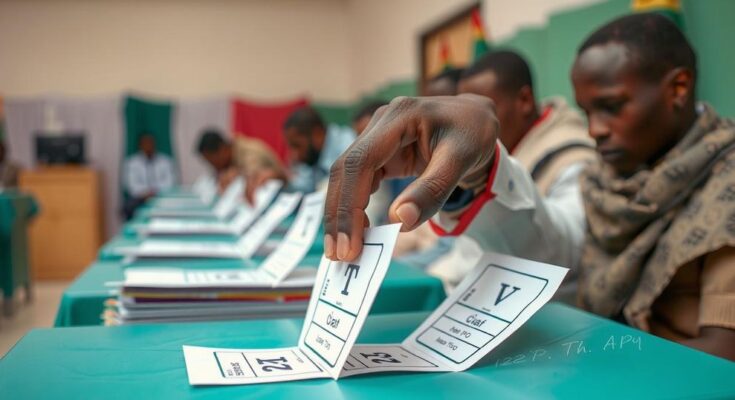Chadians are voting in parliamentary elections aimed at ending three years of military rule. The elections are boycotted by major opposition parties and follow a disputed presidential vote won by junta leader Mahamat Idriss Deby. This marks Chad’s first parliamentary election in over a decade since Deby gained power after his father’s lengthy presidency.
N’DJAMENA, Chad — Chadians have commenced voting in a parliamentary and regional election aimed at concluding a three-year transitional phase following military governance. This election, occurring on Sunday, marks the first parliamentary contest in over ten years. It follows the prior victory of junta leader Mahamat Idriss Deby in a contentious presidential election that was purportedly designed to reinstate democratic processes. Deby ascended to power in 2021 subsequent to the demise of his father, Idriss Deby Itno, who ruled the nation for three decades. Notably, the primary opposition parties have chosen to boycott this election, raising questions about the legitimacy of the electoral process and the future of democracy in Chad.
Chad has recently emerged from a period of military rule that lasted for three years. The ongoing political transition has been marked by significant tension, particularly in light of the contentious nature of the presidential election that was conducted earlier this year. The transitional government, led by Mahamat Idriss Deby, has been under scrutiny, especially after the opposition’s decision to boycott the parliamentary elections. This situation highlights the challenges faced by Chad in establishing a stable and democratic governance structure following decades of autocratic leadership.
In summary, the parliamentary election in Chad represents a critical juncture in the nation’s political evolution post-military rule. Despite the significance of this election as a step towards reinstating democracy, the boycott by major opposition factions casts a shadow on its credibility. Moving forward, the response of both the government and the opposition will play a crucial role in determining the future political landscape of Chad.
Original Source: www.wdrb.com




